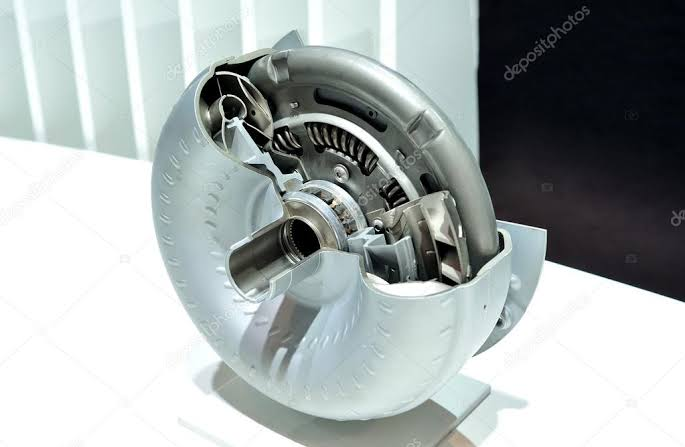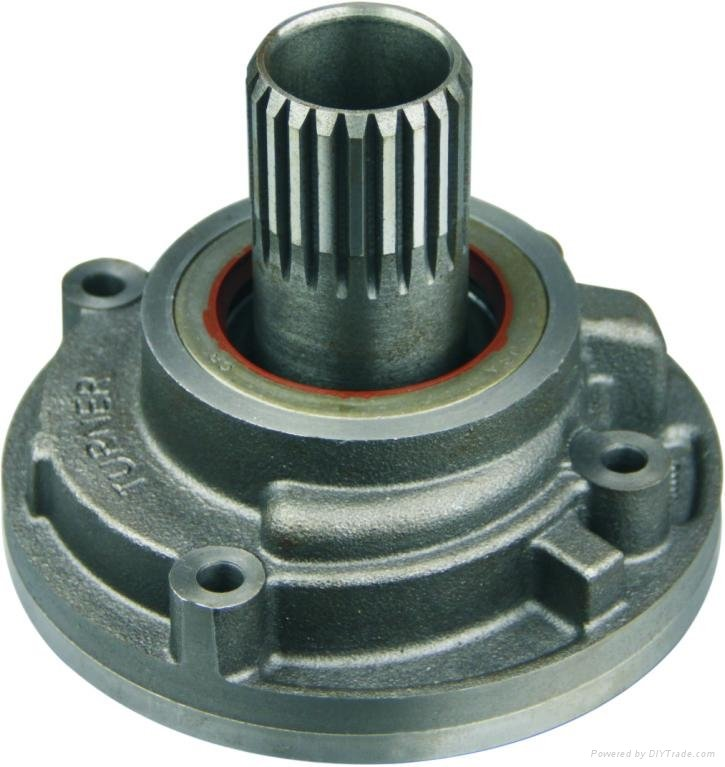What is torque converter
A torque converter is a fluid coupling device found in automatic transmission vehicles that transfers rotational power, or torque, from the engine to the transmission. It allows the engine to continue running at idle speed while the vehicle is stopped, and also smooths out power delivery during gear changes. The torque converter uses a turbine and impeller to transfer power, which are connected by a fluid. The turbine is connected to the engine, and the impeller is connected to the transmission. As the engine's torque increases, the turbine spins faster, causing the fluid to flow and transfer power to the impeller. This allows the transmission to engage smoothly, without the jerking or hesitation that would occur with a mechanical clutch.
The torque converter was invented by Alfred H. Rzeppa in the early 1930s. Rzeppa, who was a transmission engineer at the Hydra-Matic Division of General Motors, developed the torque converter as a means of smoothly transferring power from an engine to a transmission in an automatic transmission system. The torque converter uses a fluid-coupling mechanism to transfer power, which allows for smooth and efficient operation.
Maintenance of torque converter
Torque converters have several advantages, including:
Smooth engagement: Torque converters allow for a smooth transfer of power from the engine to the transmission, which can make for a more comfortable driving experience.
Engine braking: When the accelerator pedal is released, the torque converter can provide engine braking, which can help to slow the vehicle down.
Better launch characteristics: Torque converters can provide better launch characteristics than a clutch-based system, allowing for quicker acceleration from a stop.
Automatic transmissions: Torque converters are typically used in automatic transmissions, which can be more convenient for some drivers.
Towing capability: Torque converters can provide improved towing capability as it can handle high torque loads and provide additional power to move heavy loads.
Improved fuel efficiency: Torque converters can improve fuel efficiency in vehicles that use them.







Comments
Post a Comment